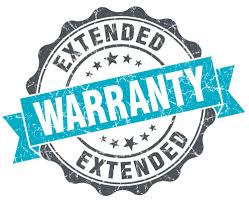
Automotive Extended Warranties
Automotive Extended Warranties are repair coverages that commence after the manufacturer's warranty expire. These warranties cover most major breakdowns and can stabilize the cost of repairs. In most cases you can purchase this warranty any time before the manufacturer warranty expires. Some warranty companies will allow you to purchase an extended warranty after the manufacturer warranty expires, although the price will be much higher.
Here are some questions to consider when purchasing an automotive extended warranty:
1. Who stands behind the warranty?
Dealerships offer third-party warranties from various companies. Make sure the warranty is backed by the automaker, not just the dealership or some other company. If you purchase a manufacturer-backed extended warranty, you can use it at any dealership across the country however some third-party warranties might only be good at the dealership that sold it to you. We suggest a warranty that will also allow you to take your vehicle to an independent repair facility like DRIVE AutoCare.
2. Have you shopped for the best price?
If you are buying the extended at the dealer, be sure to ask the Finance manager if he has shopped around for the best price. You should also take the time to shop for this coverage yourself. Your research is best done prior to your dealer visit on the day that you finalize your purchase. If the car purchase is a large budget item for you, then you can shop for a better price after the sale.
3. Do you know what's covered?
An extended warranty isn't the cure-all that some dealers make it out to be. Many wear items (brakes, belts, etc) are not covered by most vehicle extended warranties. Many extended warranties come in coverage tiers (silver, gold, platinum, for example), each with its own price and level of coverage. Take the time to read the fine print to determine what is and isn't covered. You must also determine who will front the cost for the repair bill. Are the repairs fully covered? Do you have to pay a small deductible? Or do you have to pay for the repairs up front and get reimbursed later?
4. Will you have peace of mind if you don't buy it?
The answer here is all up to you. If you're someone who will always have a nagging feeling that you should have bought the warranty, go ahead and get it. On the other hand, if you are confident that you've purchased a reliable vehicle, you can walk away and not give the extended warranty a second thought.
5. Have you looked at your repair history?
Consider your own history with vehicle breakdowns. Have your other cars had the kinds of problems that would have been covered by a warranty? If you are considering a road-hazard tire warranty, for example, think about how many times you've had a flat tire. If there is a lot of debris on the roads in your area or if you've had several flat tires in a short span of time, a road-hazard warranty may be worth looking into. But if you can't remember the last time you had a flat, you may not need the coverage.